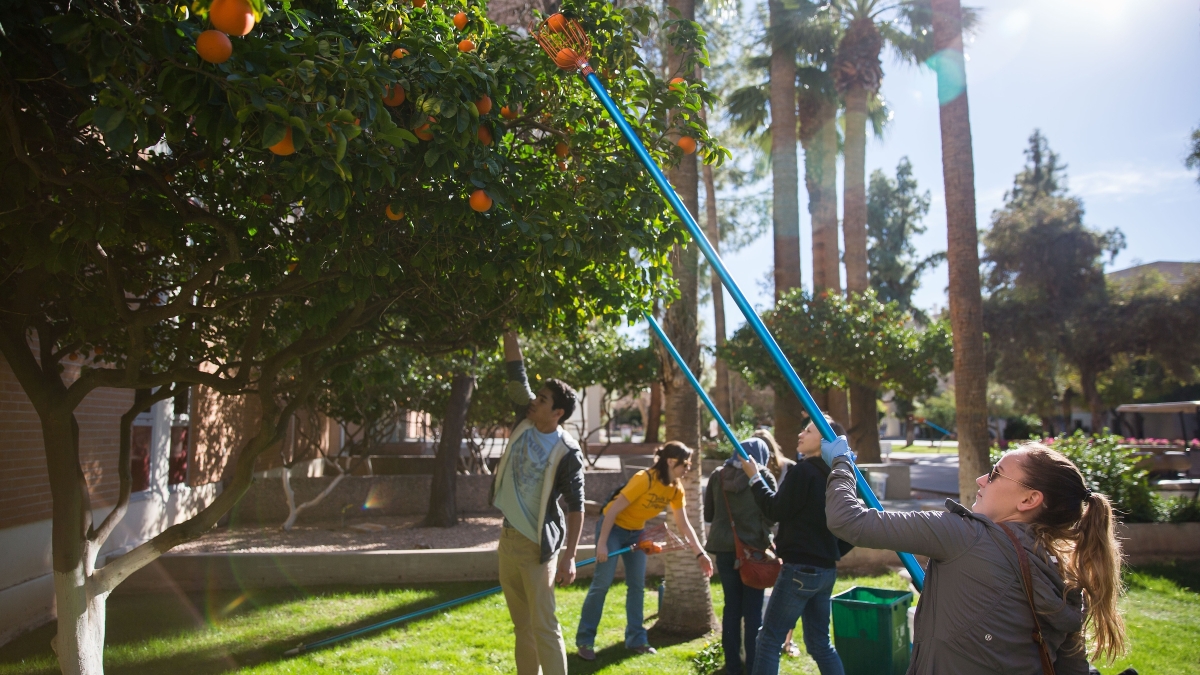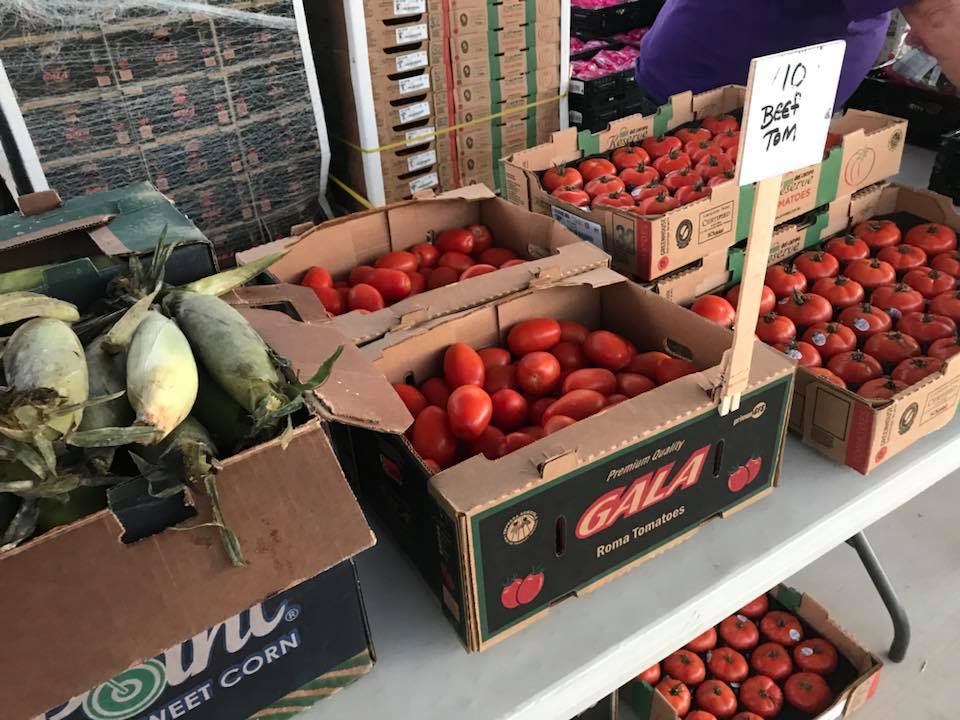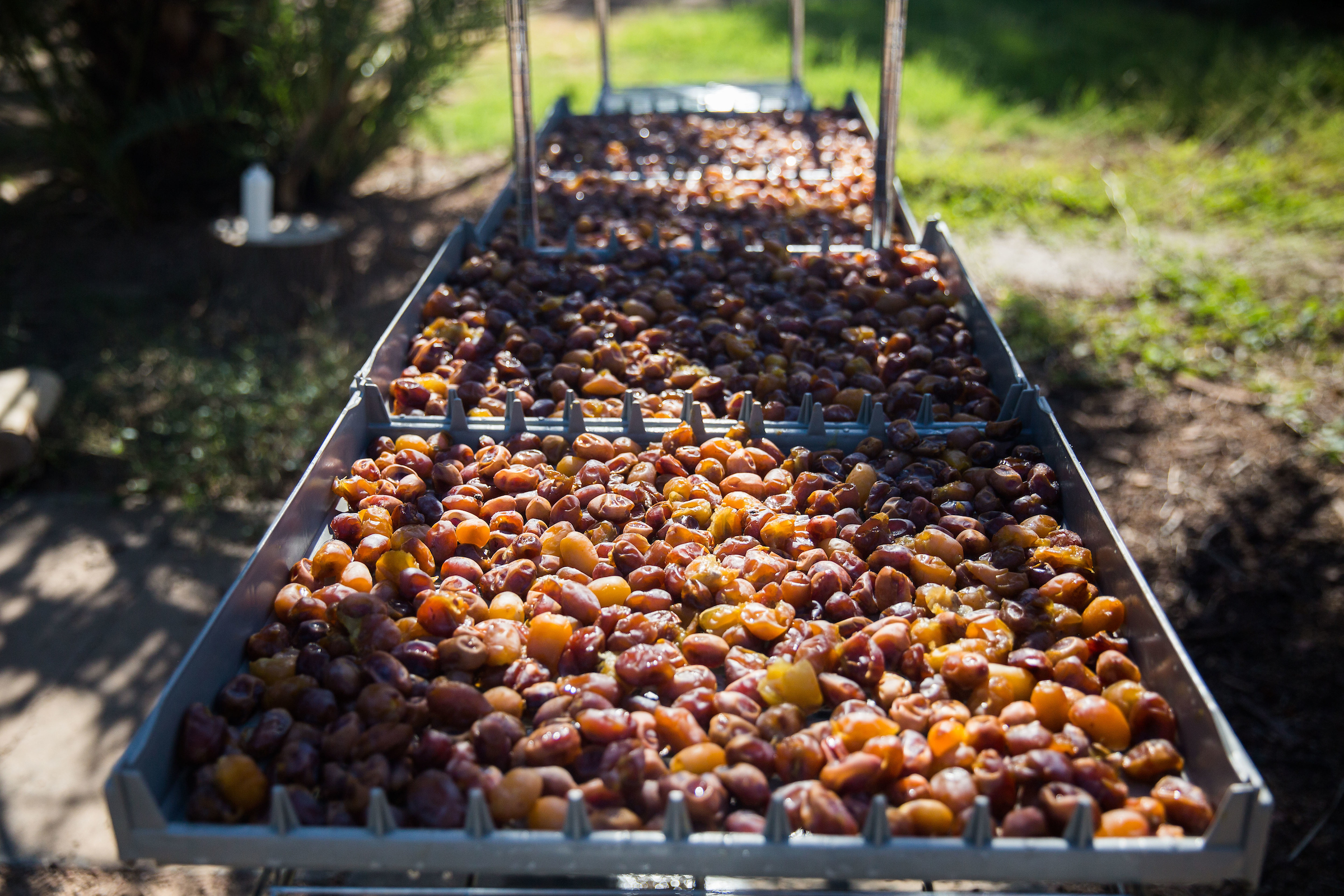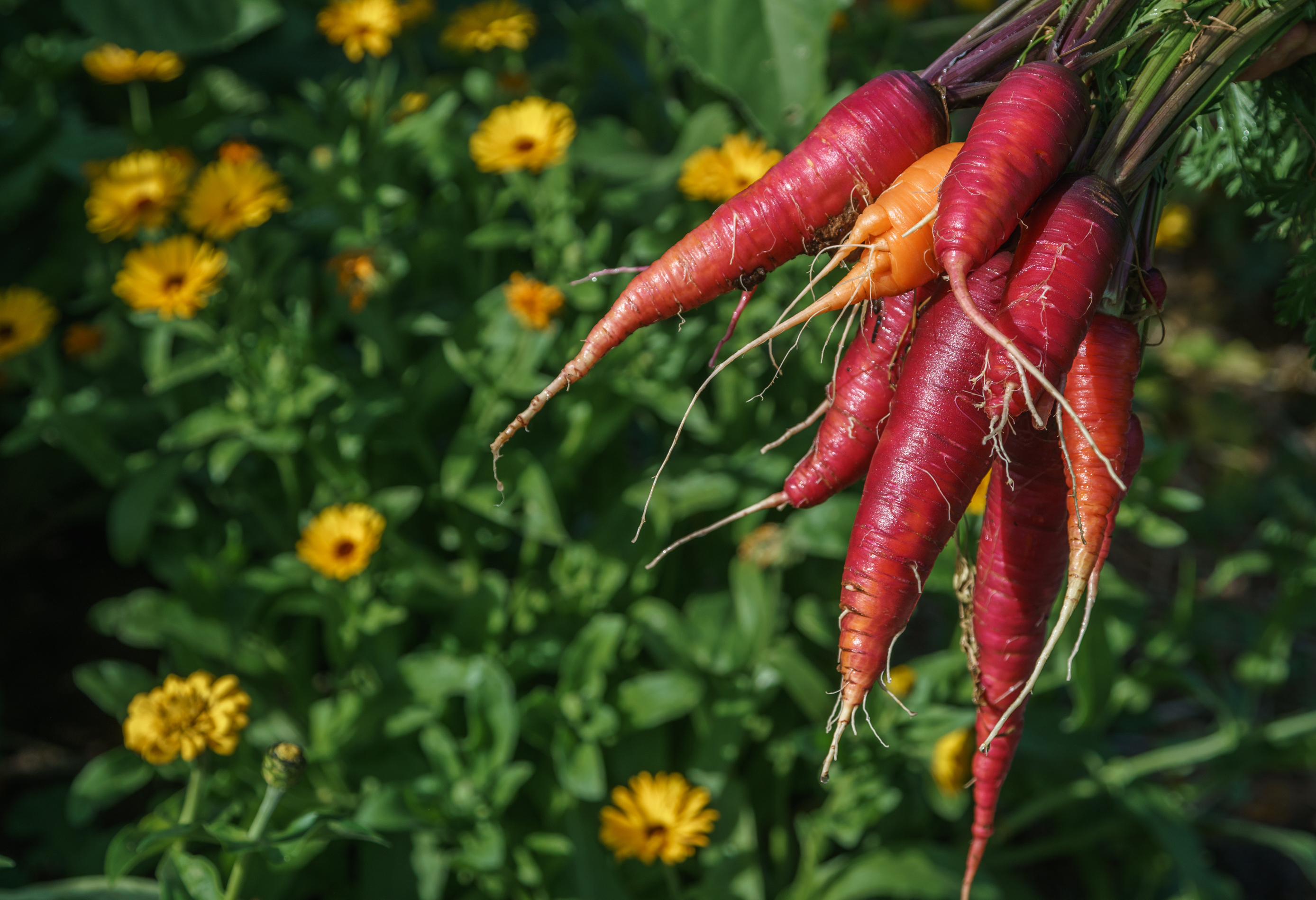Three Arizona State University programs are reconnecting students, faculty and staff with the origins of the food they eat.
Through events and volunteering opportunities, the Polytechnic campus community garden, the Campus Harvest and the ASU Produce on Wheels Without Waste program are working toward the university's 2021 goal to engage the ASU community with rescued, or locally grown and harvested, nutritious food.
Produce on Wheels Without Waste
Photo courtesy of Produce On Wheels - With Out Waste
Changemaker Central at ASU partners with Borderlands Food Bank to bring their Produce on Wheels Without Waste, or P.O.W.W.O.W. to Arizona State University.
P.O.W.W.O.W sells fresh produce destined to be landfilled by distributors by hosting markets where anyone can buy 60 pounds of produce for just $10. The markets are the third Saturday of the month, from 8 to 11 a.m. November to March, and 7 to 10 a.m. April to May. Showcased produce is announced on Thursdays in the P.O.W.W.O.W. newsletter.
“Anyone from ASU who’s interested in volunteering is encouraged to sign up on ASU VolunteerMatch. Community members interested in volunteering can sign up through Borderlands,” said Kendon Jung, Changemaker Central student-involvement coordinator.
Campus Harvest
Photo by Deanna Dent/ASU Now
Campus Harvest is another way the ASU community can be engaged with food on their campus. Dates are harvested and pollinated on the Polytechnic and Tempe campuses, and sour Seville oranges are harvested in the spring.
"Earlier this spring, volunteers harvested oranges on the Tempe campus and gave away 10-pound bags at P.O.W.W.O.W.," said Deborah Thirkhill, Campus Harvest program coordinator. "The sour orange juice is used in DevilAde and other recipes. Tempe campus Sun Devil Dining locations also sell these products."
Anyone may volunteer to pollinate the dates in March and harvest in the fall. View upcoming opportunities on ASU Events.
Polytechnic campus community garden
Photo courtesy ASU Business and Finance
At the Polytechnic campus, Susan Norton, University Sustainability Practices program manager, leads the Poly Garden.
“There are so many opportunities to eat the produce, give back with community service or even sign up for a plot,” Norton said.
Pop-up markets on the Polytechnic campus sell fresh flowers and in-season vegetables from the garden. Anyone who wants to sign up for a plot or volunteer should contact Susan Norton.
“ASU’s design aspirations call for a socially embedded university with mutually beneficial community partnerships,” said Mick Dalrymple, USP director. “These events and programs all leverage ASU’s place and use its unique resources and position to reconnect people with the sources of the meals on their table.”
For more information, visit the university’s sustainability collaborative action webpage.
More Environment and sustainability

ASU President Michael Crow named to TIME100 Climate list
Arizona State University President Michael Crow has been named to the 2024 TIME100 Climate list of leaders and innovators driving real climate action.The list includes leaders across a range of…

Driving green desalination
Wilderness survival TV show hosts, pirates and water treatment researchers agree on one thing: Most natural water sources are not safe for drinking. Among the many potential risks is the high salt…

ASU preservation facility serves as test bed for rooftop heat mitigation
A roof coating that uses thermal energy storage materials from Arizona State University spinout EnKoat is halting the heat in several ASU buildings — including a section of the university’s largest…



